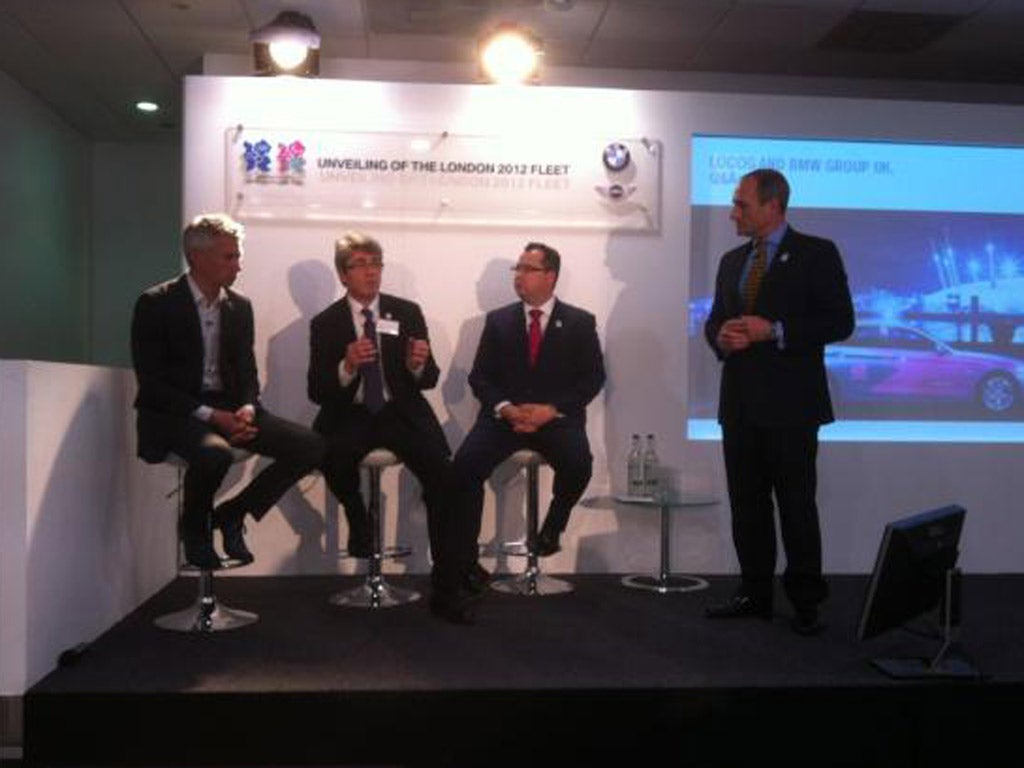Olympics by the numbers
The London 2012 festival has kicked off to celebrate 'the remarkable culture in Britain'. By Nick Clark

Your support helps us to tell the story
From reproductive rights to climate change to Big Tech, The Independent is on the ground when the story is developing. Whether it's investigating the financials of Elon Musk's pro-Trump PAC or producing our latest documentary, 'The A Word', which shines a light on the American women fighting for reproductive rights, we know how important it is to parse out the facts from the messaging.
At such a critical moment in US history, we need reporters on the ground. Your donation allows us to keep sending journalists to speak to both sides of the story.
The Independent is trusted by Americans across the entire political spectrum. And unlike many other quality news outlets, we choose not to lock Americans out of our reporting and analysis with paywalls. We believe quality journalism should be available to everyone, paid for by those who can afford it.
Your support makes all the difference.What do Jay-Z, a bouncy castle Stonehenge and a circus performance in a cathedral have in common? Answer: they all form part of the London 2012 Festival, along with street art in Bristol, a barge full of comedians, a helicopter-borne string quartet and almost 12,000 other events. The launch of this enormous jamboree, after years of planning, was enough to make even Jeremy Hunt, who by anyone's standards is not having a good week – smile.
Although the Tower of London was perhaps an inauspicious place for the embattled Culture Secretary to be yesterday, Mr Hunt was on enthusiastic form as he hailed the festival – the cultural complement to the sporting Olympics – as an "extraordinary" event. He quipped about his delight that "there is so much media interest" in the launch before adding: "This festival is a celebration of the remarkable culture that we have in our country. This festival has been put together so masterfully and encapsulates all that we are proud of. There will be something for everyone, from Beethoven to Jay-Z, from Shakespeare to Mike Leigh, from Stephen Fry to Wallace & Gromit."
The London 2012 Festival is the culmination of the four-year Cultural Olympiad, a programme of events across the UK that began after the end of the Olympic Games in Beijing. So far, 18 million people have attended or participated in performances and events. The festival, which will run from 21 June to 9 September, will include 25,000 artists from all 205 nations participating in the Olympic Games. Ten million free tickets will be available.
Projects include a "river of music" on the Thames, artist Jeremy Deller's Stonehenge rendered as a bouncy castle, the flags project at the Giant's Causeway and a light installation to span the full 73 miles of Hadrian's Wall.
Ruth Mackenzie, the director of the Cultural Olympiad and the London 2012 Festival, said: "We are going back to the days of ancient Greece, where artists and athletes celebrated together in a festival."
With 55 days to go, the organisers have promised more surprises beyond the official programme. Yet the journey to yesterday's launch has been far from plain sailing. The public has struggled to get to grips with the concept of the Olympiad, according to research last year by the University of Westminster, while some smaller intuitions feel they have unfairly missed out on opportunities for funding. Others have lambasted some of the projects as a waste of money, particularly in an age of austerity.
Works that have drawn controversy include 30ft crocheted lions, a glacier dragged from the Arctic to the south-west coast of England, and a three-mile-high tower of vapour from a dock in the Wirral. The Danish-Icelandic artist Olafur Eliasson's installation Take A Deep Breath, which involved participants breathing on behalf of a "person, movement, or cause" and recording it for a website, was rejected by the Olympic Lottery Distributor, saying it struggled to justify the £1m sought.
Speaking to i, Ms Mackenzie stressed that funding for the £100m Cultural Olympiad had not come from the taxpayer. "It is important to say that. The Cultural Olympiad has been funded by lottery money – that is not taxpayers' money. It is money people choose [to spend] when they buy a ticket for the lottery and they know what the good causes are. They know it is arts and sports and heritage."
Ms Mackenzie, whose schedule has been punishing in the build-up to the launch of the festival, admitted the process was tough. "No one has ever tried to do a festival across an entire nation before," she said.
While many events are temporary, a series of artworks built around the Olympic Park in Stratford, east London, will be a permanent cultural reminder of the games. Yesterday, Sarah Weir, chief executive of the Legacy List, unveiled the Art in the Park, which comprises more than 30 works including sculptures, a floating cinema and poetry inscribed on walls. "Art has never been done in the Olympic Park in this way before," she said. "Our artists integrated their work into the park."
Ms Mackenzie said she was confident that the festival would be eye-catching enough to avoid being overshadowed by the main sporting events. "We think we will have over 20,000 journalists here this summer who come for London 2012 but don't have passes to go to the sport," she said. "So they are going to be here to cover the cultural events which is a huge opportunity for us."
Join our commenting forum
Join thought-provoking conversations, follow other Independent readers and see their replies
Comments